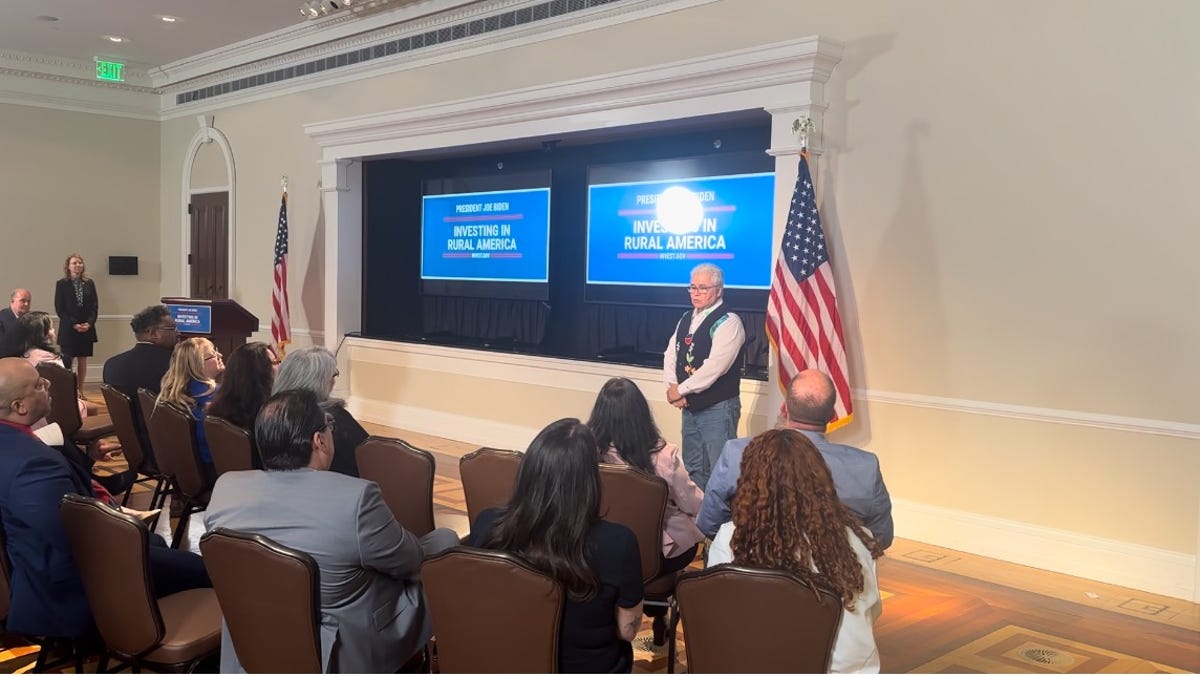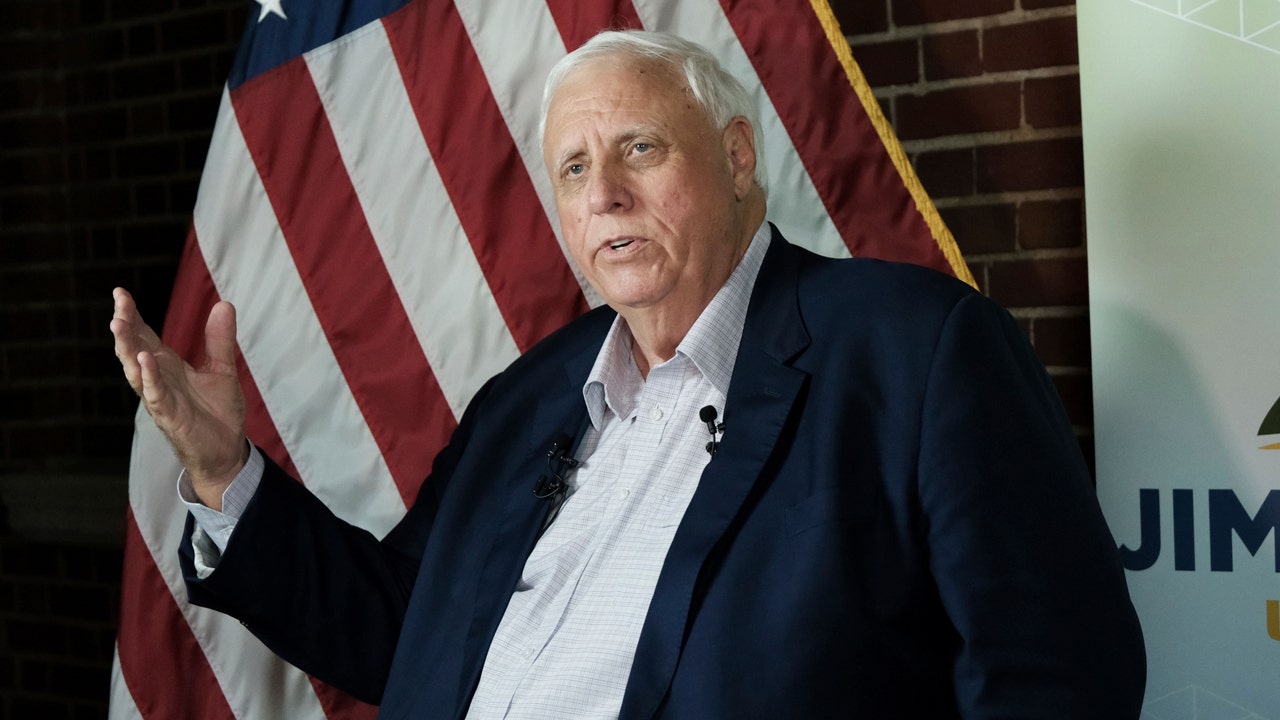Wisconsin
Complaint filed to have Trump removed from Wisconsin 2024 ballot denied

MADISON, Wis. — A complaint filed with the Wisconsin Election Commission (WEC) to have former president Donald Trump removed from the 2024 ballot has been denied. It’s a decision that took less than three hours.
At 1 p.m. Thursday in Madison, Kirk Bangstad filed the complaint with the WEC.
Bangstad is the owner of Minocqua Brewing and filed the complaint following the ruling out of Colorado when its Supreme Court ruled last week the former president would not be on its state ballot.
“I’m simply a brewer from northern Wisconsin, but I care about my country, and I care about democracy, so that’s why I’m doing this,” Bangstad explained.
That was moments after Bangstad filed his complaint Thursday afternoon. He said then, he knew the complaint would be denied by the commission.
Just after 3:30 p.m., TMJ4 received an email from the commission saying they’ve recused themselves from the complaint, denying it altogether. A process UW-La Crosse Assistant Professor, Anthony Chergosky, said is par for the course.
“The Wisconsin Elections Commission acted quickly on this. They didn’t do anything surprising. This was very much expected, and now we can turn our attention to how the courts in Wisconsin might handle this legal issue,” Chergosky said.
Bangstad said he plans to sue the commission after the denial of his complaint. That action will take things to Dane County Circuit Court which could end up in Wisconsin’s State Supreme Court.
However, if the U.S. Supreme Court takes Colorado’s case and rules on it, that could make the decision for all 50 states whether Trump is on the ballot or not.
It’s about time to watch on your time. Stream local news and weather 24/7 by searching for “TMJ4” on your device.
Available for download on Roku, Apple TV, Amazon Fire TV, and more.
Report a typo or error // Submit a news tip

Wisconsin
A Brandy Cocktail Saved A Wisconsin Supper Club From Becoming Condos

The front entrance of The Village Supper Club boasts an exterior fireplace that is reminiscent of … [+]
The Village Supper Club on Lake Delavan’s more than a century of operations almost shut down were it not for its Brandy Alexander cocktails.
These memorable ice cream drinks spurred Loretta and Allan Kaplan to save one of the longest, continuously operated supper clubs in the state. The historic property had initially been the dining lodge of Hall’s Park Resort when it opened in 1882. Over the years, it evolved into different restaurants and supper clubs, and as different owners took over, they expanded the building, a bit haphazardly at times, adding on to the as the space needs of the time dictated.
The Kaplans came every summer to enjoy life on the lake just a few doors down from the then named Swedish Village supper club. The couple had fond memories of taking their children out to dinner there, and when their children grew older, they still frequented the supper club. Most nights during the summer, they would head out after dinner and walk down along the lake to the supper club. “We used to come here late at night to get Brandy Alexanders as a dessert, and then we would dance on their small dance floor,” says Loretta.
In 2021, the beloved property went on sale. “My wife came home and told me ‘Hey, the Village is on the market,’” Allan recalls.
The couple immediately decided that they had to act – and act fast before a developer purchased the property and converted it into condos, which is what happened to another supper club on Lake Delavan. “This was always a restaurant, and it will always be a restaurant,” Allan says.
Cocktails, including the Wisconsin old fashioned and martinis, are very popular at The Village … [+]
So, after purchasing the building, they hired DMAC Architecture and Interiors to bring the historic property into the 21st Century. Initially, they were just going to do a heavy remodel, but with the age of the building and some questionable additions, they decided that the best course of action was to keep the building’s footprint, save whatever they could, but create an updated space that highlighted the property’s best feature: the lake.
“We are a modern take on a supper cub with great food and drink but a casual and welcoming atmosphere,” says Robert Johnson, general manager.
The re-imagined Village Supper Club welcomes visitors with a grand, asymmetrical, outdoor fireplace, which is reminiscent of Frank Lloyd Wright’s Taliesin West, and the grand interior with its cathedral ceiling and warm wood tones is inspired by some of the grand Midwestern barns of the area.
“This is a legacy project,” says Dwayne MacEwen, principal at DMAC Architecture and Interiors. “This should be timeless. It’s elegant, but it’s not trying too hard.”
The redesign evokes nostalgia of the supper clubs of yesteryear while maintaining a modern sophistication. The expansive, A-frame structure sets the stage for a gorgeous vista of Lake Delavan, as a wall of windows opens out onto the lake, and the tables are set in almost a stadium seating arrangement so there’s not a bad seat in the house, as every table and booth offers equally stunning views. The Kaplans pushed to save all of the trees that dot the landscape, and an equally expansive deck opens out onto the lake. The deck overlooks a dock where visitors can actually dock their boats if they choose to arrive via water instead of streets.
“They did a phenomenal job,” says Doug Wexler, a local resident “This will be the supper club other supper clubs will be compared to.”
After visitors walk past the fireplace and into the restaurant, they are greeted by hand-crafted bookcases, which highlight the history of the building, and the shelves line the back wall, which boasts its own conversation area behind the bar.
The bar itself is a magnificent, gold cage suspended overhead, showcasing the brandy and whiskey offerings. The Brandy Alexander is, of course, a specialty drink, but like every good supper club, the Village serves up Wisconsin Old Fashioneds, made with brandy or whiskey, served with sweet or sour, with muddled Luxardo cherries and oranges.
Though Wisconsin Old Fashioneds are most popularly served brandy and sweet, meaning they are crafted with brandy and topped with sweet soda (like Sprite), the sour versions are crafted with honey syrup and house sour mix. “And I make each one with love,” says Becky Hoogland, bartender.
Wisconsin
Airbnb is blocking some Wisconsin rentals on summer holiday weekends to address partying
Peek inside MetalLark Tower
The two-story house, which is available for rent on Airbnb, features floor-to-ceiling windows on three sides and overlooks a prairie, woodlands and a small lake.
Chelsey Lewis, Milwaukee Journal Sentinel
With summer weekend getaways fast approaching in Wisconsin, short-term rental company Airbnb is blocking some reservations to prevent homes from being used for partying.
Airbnb said in a press release that it blocked about 67,500 people over the Memorial Day and July 4 weekends last year, with about 500 of those blocked in Wisconsin. The company is blocking some one-night and two-night reservations over both holidays and using technology that they say identifies “higher-risk” rentals.
“This is really about respecting hosts and respecting neighborhoods,” said Christopher Nulty, Airbnb spokesperson and global director of corporate and policy communications, in an interview with the Journal Sentinel. “What we’re really talking about here is unauthorized, large-scale problematic parties.”
An Airbnb spokesperson said in an email the company wouldn’t have data on this year’s blocked reservations until after the holiday season. But Nulty said that the company sees this effort becoming especially important in Wisconsin during the summer months.
“We’re particularly focused on this in Wisconsin during the (summer) because it’s when people from Chicago go up to Door County. The business is strongest here in the summer,” Nulty said.
Nulty said the company is using machine learning to automatically flag some reservations.
He said its reservation system looks at a number of factors, like when a reservation is booked, how far away it is from where someone lives and whether someone has made similar bookings without challenges.
He said the technology has reduced reports of partying by half in the last year and that .035% of its reservations resulted in a party report to them in 2023.
The company is requiring guests to agree that they understand the ban on partying when making reservations. In turn, if a guest is blocked from booking an entire home, the company will give them the option of booking a hotel room or private room.
The party bans started in 2022, according to a USA TODAY report from that year, as the COVID-19 pandemic led some to use the rentals for partying, with bars and clubs closed.
Nulty said Airbnb began the effort to reduce partying on reservations as a way to respect the hosts, rather than responding to a widespread issue. He said Airbnb still allows homes to be used for things like weddings, birthday parties and other small-scale events.
The company heard from hosts and law enforcement in the past about the need for this emphasis, he said.
“People don’t want to share their homes if they’re worried about what’s going to happen to them,” Nulty said.
The company’s other anti-partying efforts include its Neighborhood Support Line, which lets neighborhood residents report issues at rentals to the company; a 24-hour safety line; noise sensors for hosts; and a law enforcement support channel.
Wisconsin
Wisconsin Ojibwe leader included in White House discussions on rural issues

Mole Lake Ojibwe Chairman Robert Van Zile had a message for rural community leaders at the White House earlier this month.
“Why compete with one another when we can work together,” he said. “We can focus on the things we have in common in being able to prosper.”
Van Zile said it was good conversation between leaders in tribal nations, rural towns, rural counties and federal officials as they discussed ways to bring in federal dollars to improve infrastructure.
He said tribal nations can play a role in helping surrounding rural communities in creating broadband access, building water and septic infrastructure, housing and health care.
Van Zile was among those invited to the White House this month by the Biden-Harris Administration as part of its Rural Communities in Action event.
“We got invited to help push the envelope,” he said.
They met to discuss the issues with senior White House officials, including Agriculture Secretary Tom Vilsack and Transportation Secretary Pete Buttigieg.
“Rural communities are being gutted by lack of economic opportunity, lack of broadband access, lack of housing, lack of access to healthcare due to inability to recruit healthcare professionals to address a variety of medical and mental health challenges,” Van Zile said in a statement.
Van Zile said the Mole Lake Reservation in northern Wisconsin is in a rural region that even lacks cellphone service in many places. And the lack of internet access was apparent during the pandemic when students in many households found it challenging to learn at home.
“They could not continue their studies remotely during the pandemic,” he said. “Our rural kids were not able to participate in education because broadband access does not exist in many rural communities.”
The reservation is home to about 500 tribal members with another 1,000 members living off-reservation.
Van Zile said many people want to build vacation homes and move to the Mole Lake area, which would be a boost to the economy. But they find challenges with lack of infrastructure.
“It’s not just tribal members,” he said. “What I’m talking about is tourism.”
In conjunction with the event, the White House also just announced $671 million in new investments for infrastructure in rural communities.
Van Zile’s visit also included a discussion with Sen. Tammy Baldwin of Wisconsin, which included thanking her for the $3 million she helped recently secure for the tribe’s community health clinic.
Van Zile also opened a workshop at the event with a prayer, becoming the first Mole Lake chairman to open an official meeting in Washington, D.C.
Frank Vaisvilas is a former Report for America corps member who covers Native American issues in Wisconsin based at the Milwaukee Journal Sentinel. Contact him at fvaisvilas@gannett.com or 815-260-2262. Follow him on Twitter at @vaisvilas_frank.
More: Tribal educators talk e-learning curve, prepare for fall pandemic learning
More: State task force to look at expanding internet access to rural Indigenous reservations
-

 Politics1 week ago
Politics1 week agoVulnerable Dem incumbents move to the center in key swing states as Biden panders to far-left base
-

 World1 week ago
World1 week ago‘Monstrous crime’: World reacts to attack on Slovakia’s prime minister
-

 News1 week ago
News1 week agoHow a migrant aid group got caught up in a right-wing social media thread : Consider This from NPR
-

 Politics1 week ago
Politics1 week agoSouthern border migrant encounters decrease slightly but gotaways still surge under Biden
-

 Politics1 week ago
Politics1 week agoDem newcomer aims for history with primary win over wealthy controversial congressman
-

 World1 week ago
World1 week agoSlovakia PM Robert Fico in ‘very serious’ condition after being shot
-

 World1 week ago
World1 week agoCanadian Nobel-winning author Alice Munro dies aged 92
-

 Movie Reviews1 week ago
Movie Reviews1 week agoIs Coppola’s $120M ‘Megalopolis’ ‘bafflingly shallow’ or ‘remarkably sincere’? Critics can’t tell




















